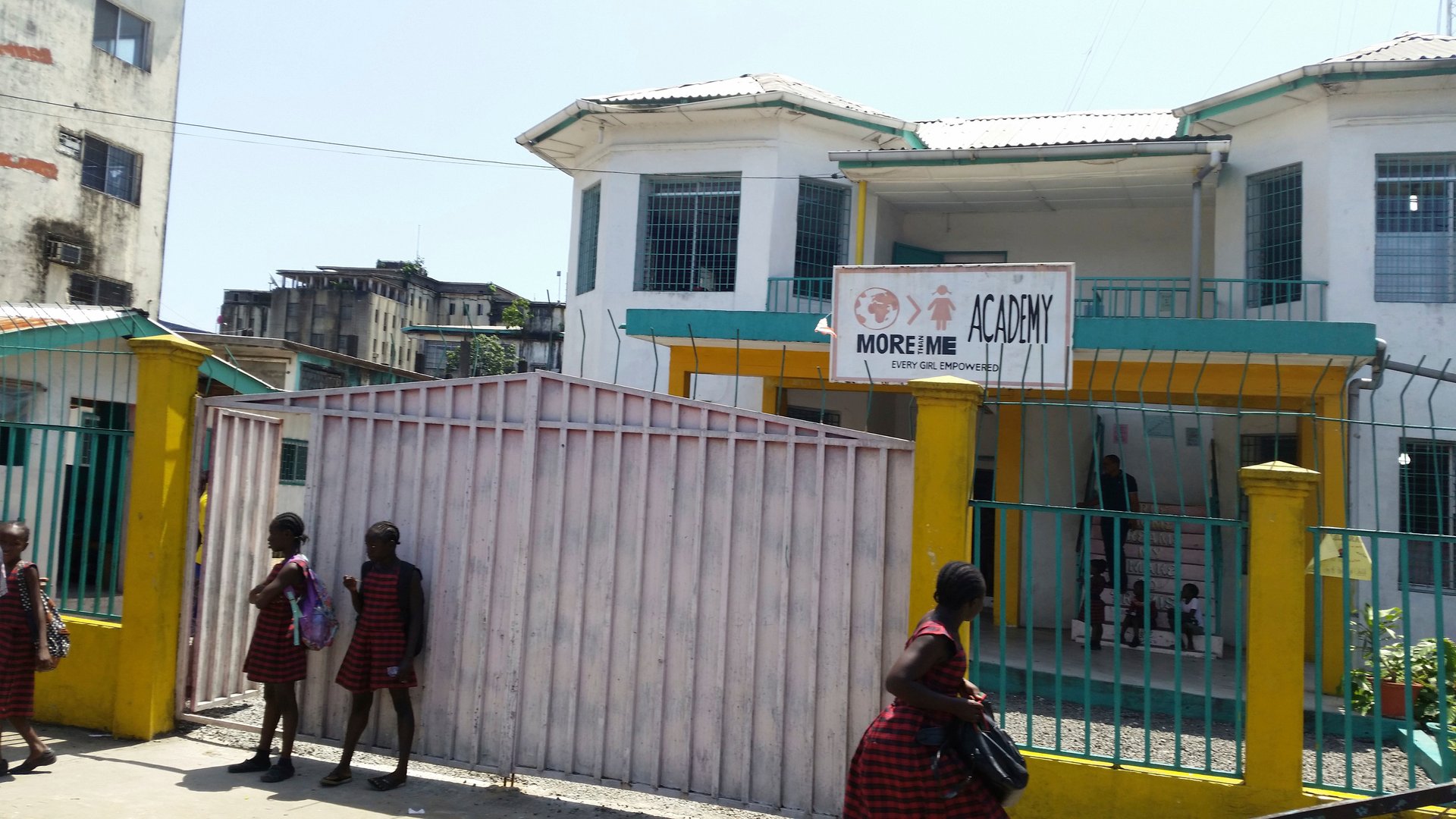A Liberian child sex scandal raises serious questions of moral accountability for NGOs
In its chilling exposé, Unprotected, ProPublica uncovered how girls as young as 10 at the US-backed More Than Me Academy in Liberia were raped by the charity’s Liberian co-founder, Macinstosh Johnson. The report details MTM’s poor response to the allegations when they surfaced in 2014 and how early warning signs of Johnson’s troubling behavior around minors were ignored by former members of the nonprofit.


In its chilling exposé, Unprotected, ProPublica uncovered how girls as young as 10 at the US-backed More Than Me Academy in Liberia were raped by the charity’s Liberian co-founder, Macinstosh Johnson. The report details MTM’s poor response to the allegations when they surfaced in 2014 and how early warning signs of Johnson’s troubling behavior around minors were ignored by former members of the nonprofit.
Since the story broke on Oct. 11, it has made waves on both sides of the Atlantic. More Than Me’s American founder Katie Meyler temporarily stepped down as chief executive, and some board members resigned. The organization acknowledged the rape cases on its website under the heading: “Our worst nightmare”.
In Liberia, an official investigation has been launched into the charity which, besides the academy, assists in running about 18 public schools in the country. As part of the investigation, the government will also request Meyler’s Liberian and American mobile phone records. It was also revealed that Johnson, who at one point was said to be romantically involved with Meyler, had AIDs when he died in 2016.
However, there are mixed reactions to the report in West Point—Monrovia’s largest slum—where MTM academy is located. Some community members and even students from the school took to the streets of Monrovia in defense of Meyler. They argue, despite the charity’s original sins, it continues to do a lot of good in their overlooked community.
“On the local level, there was a failure to protect the kids and a fear of losing scholarships and the good things happening to the community,” said Finlay Young, ProPublica’s lead reporter on Unprotected, at a recent screening of the documentary. The scandal, he said, illustrates successive failures of due diligence and speaks to a deeper malaise within the nonprofit sector, particularly when it comes to accountability.
“On a judicial level, the courts didn’t hold Johnson responsible despite the overwhelming evidence of his crimes,” Young explains. As for MTM, there was also a failure to hold Meyler accountable; and on the donor level: there was a failure to follow up on the proper use of funds and the wellbeing of the girls they were supporting. Meyler created a freewheeling enterprise which ended up functioning more as a business catering to donors instead of the girls.
According to Young, there was a receptive place for groups like MTM in Liberia after its 14-year civil war, which led to 250,000 deaths. The war was characterized by mass rape, sexual violence and underage prostitution—vices that live on in post-war Liberia. Overwhelmed by the crisis’ aftermath, there was a cry for international intervention. “Post-war Liberia coincided with idea of the social entrepreneur,” said Nadia Sussman, video journalist at ProPublica.
Meyler, who said as a child she considered herself to be poor as her single mother worked minimum-wage jobs and other well-off kids in their suburban town teased her, was one such entrepreneur who heeded that call by first arriving as a program coordinator with Samaritan’s Purse in 2006 before establishing More Than Me in 2009. Her work was praised by Bill Gates, Warren Buffet and Oprah Winfrey. Former Liberian president Ellen Johnson Sireaf went as far as saying that Meyler’s efforts should be replicated in other parts of the country. In 2014, Time Magazine named her and others who helped combat Liberia’s Ebola epidemic as its Person of the Year.
“She was living out the Hollywood story that one person can venture out, despite their hardships and save someone else,” said Young. He still believes the charity had initially set out with good motives. “These are people with an idea to help but who don’t have the tools to adapt once confronted with complexities on the ground.”
Young says there was an appetite in the West for these kinds of feel-good stories, and as such even the media was culpable.
Revelations of sexual abuse have rocked the nonprofit world this year— from Oxfam workers using prostitutes in Haiti to Save the Children staff reporting misconduct by bosses. This dysfunction signals a need for more oversight and for the continent to perhaps re-evaluate its relationship with foreign intervention.
In the documentary, former MTM board member Chid Liberty, who is Liberian-American, said race played a factor as “anywhere else in the world everyone involved would be in some way held to account.” A lot was taken for granted because the school wasn’t just located in an African country, but in a ghetto. And no one, not even then president Johnson Sirleaf, who had endorsed the school, ensured at the time that it met the standards it purported to bring.
While it will be difficult for the New Jersey-registered MTM or Meyler to face justice in the US, Young says another form of it could be “that the money dries up” and people, particularly donors, dissociate themselves from the charity. NoVo Foundation, a charity run by Warren Buffett’s son Peter and daughter in-law Jennifer, has suspended a previously approved operating grant of $330,000 in the wake of scandal.
Sign up to the Quartz Africa Weekly Brief here for news and analysis on African business, tech and innovation in your inbox